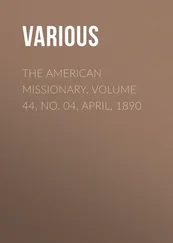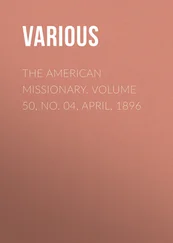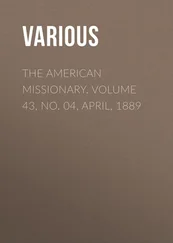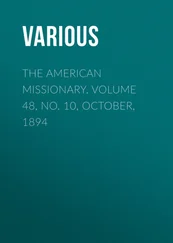Elizabeth Ellet - The Women of The American Revolution, Vol. 2
Здесь есть возможность читать онлайн «Elizabeth Ellet - The Women of The American Revolution, Vol. 2» — ознакомительный отрывок электронной книги совершенно бесплатно, а после прочтения отрывка купить полную версию. В некоторых случаях можно слушать аудио, скачать через торрент в формате fb2 и присутствует краткое содержание. Жанр: foreign_antique, foreign_prose, на английском языке. Описание произведения, (предисловие) а так же отзывы посетителей доступны на портале библиотеки ЛибКат.
- Название:The Women of The American Revolution, Vol. 2
- Автор:
- Жанр:
- Год:неизвестен
- ISBN:нет данных
- Рейтинг книги:5 / 5. Голосов: 1
-
Избранное:Добавить в избранное
- Отзывы:
-
Ваша оценка:
- 100
- 1
- 2
- 3
- 4
- 5
The Women of The American Revolution, Vol. 2: краткое содержание, описание и аннотация
Предлагаем к чтению аннотацию, описание, краткое содержание или предисловие (зависит от того, что написал сам автор книги «The Women of The American Revolution, Vol. 2»). Если вы не нашли необходимую информацию о книге — напишите в комментариях, мы постараемся отыскать её.
The Women of The American Revolution, Vol. 2 — читать онлайн ознакомительный отрывок
Ниже представлен текст книги, разбитый по страницам. Система сохранения места последней прочитанной страницы, позволяет с удобством читать онлайн бесплатно книгу «The Women of The American Revolution, Vol. 2», без необходимости каждый раз заново искать на чём Вы остановились. Поставьте закладку, и сможете в любой момент перейти на страницу, на которой закончили чтение.
Интервал:
Закладка:
Her arrival at camp was an event much anticipated; the plain chariot, with the neat postillions in their scarlet and white liveries, was always welcomed with great joy by the army, and brought a cheering influence, which relieved the general gloom in seasons of disaster and despair. Her example was followed by the wives of other general officers.
It happened at one time while the ladies remained later than usual in the camp on the Hudson, that an alarm was given of the approach of the enemy from New York. The aids-de-camp proposed that the ladies should be sent away under an escort. To this Washington would not consent. "The presence of our wives," said he, "will the better encourage us to a brave defence." The night was dark; and the words of command from the officers, the marching of the troops, the dragging of artillery into the yard, and the noise of removing the windows of the house – the house itself being filled with soldiers – all gave "dreadful note of preparation." The enemy, however, finding themselves mistaken in their hopes of a surprise, withdrew without coming to blows.
Lady Washington, as she was always called in the army, usually remained at head-quarters till the opening of the succeeding campaign, when she returned to Mount Vernon. She was accustomed afterwards to say that it had been her fortune to hear the first cannon at the opening, and the last at the closing, of all the campaigns of the Revolutionary war. How admirably her equanimity and cheerfulness were preserved, through the sternest periods of the struggle – and how inspiriting was the influence she diffused, is testified in many of the military journals. She was at Valley Forge in that dreadful winter of 1777-8; her presence and submission to privation strengthening the fortitude of those who might have complained, and giving hope and confidence to the desponding. She soothed the distresses of many sufferers, seeking out the poor and afflicted with benevolent kindness, extending relief wherever it was in her power, and with graceful deportment presiding in the Chiefs humble dwelling. 3 3 Thacher's Journal and other authorities.
In a letter to Mrs. Warren she says, "The General's apartment is very small; he has had a log cabin built to dine in, which has made our quarters much more tolerable than they were at first." Their table was but scantily furnished; but the soldiers fared still worse, sitting down at a board of rough planks, set with horn spoons and a few tumblers; the food being often salt herrings and potatoes, without other vegetables, or tea, coffee, or sugar. Their continental money was no temptation to the farmers to sell them produce. The stone jug passed round was filled with water from the nearest spring; and rare was the privilege of toddy in which to drink the health of the nation. Yet here, forgetful of herself, the patriot wife anxiously watched the aspect of affairs, and was happy when the political horizon brightened. She writes to Mrs. Warren – "It has given me unspeakable pleasure to hear that General Burgoyne and his army are in safe quarters in your State. Would bountiful Providence aim a like stroke at General Howe, the measure of my happiness would be complete." 4 4 MS. letter, March 7th, 1778.
The Marquis de Chastellux says of Mrs. Washington, whom he met at the house of General Reed in Philadelphia, – "'She had just arrived from Virginia, and was going to stay with her husband, as she does at the end of every campaign. She is about forty, or five-and-forty, rather plump, but fresh, and of an agreeable countenance." In another passage, he notices the camp life shared by her: "The head-quarters at Newburgh consist of a single house, built in the Dutch fashion, and neither large nor commodious. The largest room in it, which General Washington has converted into his diningroom, is tolerably spacious, but it has seven doors and only one window. The chimney is against the wall; so that there is, in fact, but one vent for the smoke, and the fire is in the room itself. I found the company assembled in a small room which served as a parlor. At nine, supper was served, and when bedtime came, I found that the chamber to which the General conducted me was the very parlor spoken of, wherein he had made them place a camp-bed. We assembled at breakfast the next morning at ten, during which interval my bed was folded up; and my chamber became the sitting room for the whole afternoon; for American manners do not admit of a bed in the room in which company is received, especially where there are women. The smallness of the house, and the inconvenience to which I saw that General and Mrs. Washington had put themselves to receive me, made me apprehensive lest M. Rochambeau might arrive on the same day. The day I remained at headquarters was passed either at table or in conversation."
The recollections of a veteran still living at Manchester, Massachusetts, at the age of ninety-two, bear testimony to the kindness of Mrs. Washington towards those in the humblest sphere. One little incident occurred when she came to spend the cold season with her husband in winter-quarters. There were but two frame-houses in the settlement, and neither had a finished upper story. The General was contented with his rough dwelling, but wished to prepare for his wife a more retired and comfortable apartment. He sent for the young mechanic, and desired him and one of his fellow-apprentices to fit up a room in the upper story for the accommodation of Lady Washington through the winter. She herself arrived before the work was commenced. "She came," says the narrator, "into the place – a portly-looking, agreeable woman of forty-five, and said to us: 'Now, young men, I care for nothing but comfort here; and should like you to fit me up a beauffet on one side of the room, and some shelves and places for hanging clothes on the other.' We went to work with all our might. Every morning about eleven Mrs. Washington came up stairs with a glass of spirits for each of us; and after she and the General had dined, we were called down to eat at their table. We worked very hard, nailing smooth boards over the rough and worm-eaten planks, and stopping the crevices in the walls made by time and hard usage. Then we consulted together how we could smooth the uneven floor, and take out, or cover over some of the huge black knots. We studied to do every thing to please so pleasant a lady, and to make some return in our humble way for the kindness of the General. On the fourth day, when Mrs. Washington came up to see how we were getting along, we had finished the work, made the shelves, put up the pegs on the wall, built the beauffet, and converted the rough garret into a comfortable apartment. As she stood looking round, I said, 'Madam, we have endeavored to do the best we could; I hope we have suited you.' She replied, smiling, 'I am astonished! your work would do honor to an old master, and you are mere lads. I am not only satisfied, but highly gratified with what you have done for my comfort.'" As the old soldier repeated these words, the tears ran down his furrowed cheeks. The thrill of delight which had seventy years before penetrated his heart at the approving words of his General's lady, again animated his worn frame, sending back his thoughts to the very moment and scene.
At one time the head-quarters of the Commander-in-chief were at the house of Mrs. Berry, in New Jersey. While he remained here Mrs. Washington arrived. When the carriage stopped, and a female in a plain russet gown, with white handkerchief neatly folded over her neck, was seen, Mrs. Berry imagined her to be a domestic. But she was undeceived when the General went forward to receive her, assisted her from the carriage, and after the first greeting, began to inquire after his pet horses. A ball was given in honor of the arrival of "Lady Washington," at which her brave husband himself condescended to lead a minuet; it being the first occasion in a long time on which he had been known to dance. 5 5 Communicated by a friend of Mrs. Berry.
Интервал:
Закладка:
Похожие книги на «The Women of The American Revolution, Vol. 2»
Представляем Вашему вниманию похожие книги на «The Women of The American Revolution, Vol. 2» списком для выбора. Мы отобрали схожую по названию и смыслу литературу в надежде предоставить читателям больше вариантов отыскать новые, интересные, ещё непрочитанные произведения.
Обсуждение, отзывы о книге «The Women of The American Revolution, Vol. 2» и просто собственные мнения читателей. Оставьте ваши комментарии, напишите, что Вы думаете о произведении, его смысле или главных героях. Укажите что конкретно понравилось, а что нет, и почему Вы так считаете.












